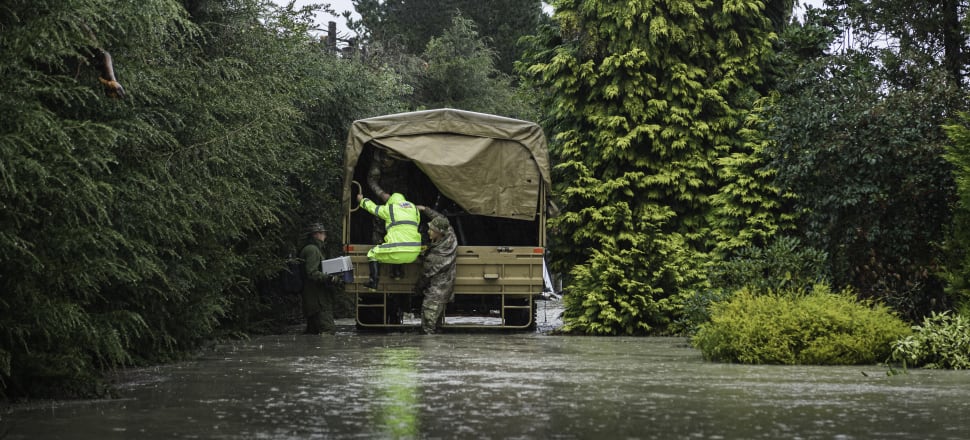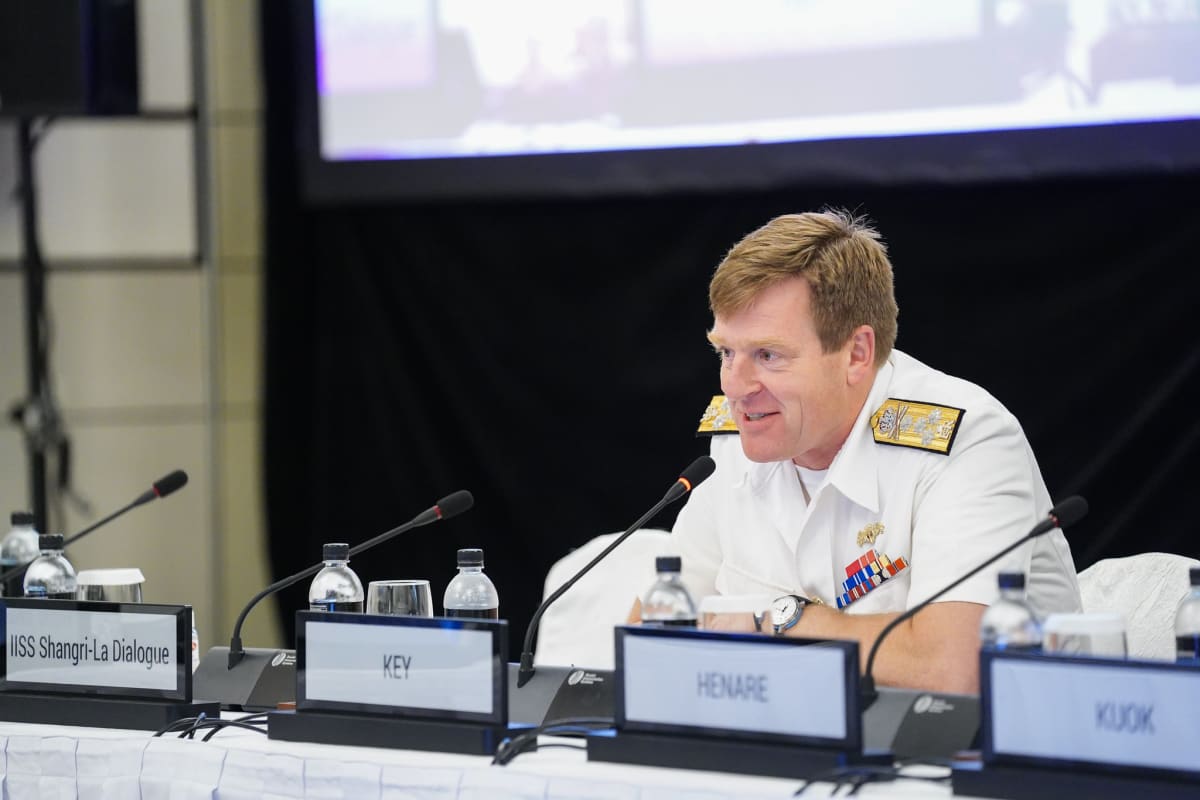
Countries are pledging to boost defence spending in a volatile world, while also pushing to reach carbon zero. Sam Sachdeva reports on how politicians and military officials believe the conflicting goals can be married
As sabre rattling in the Indo-Pacific grows, so too has the list of nations looking to bulk up their military might as a result.
Japanese prime minister Fumio Kishida pledged to lift his country’s defence spending to 2 percent of GDP – a commitment also made by Australian defence minister Richard Marles – while others spoke of ramping up rather than cutting back their resources.
Those commitments carry not just a financial cost, but an environmental one too.
The US military reportedly emits more carbon than the likes of Denmark or Portugal. The UK-based group Scientists for Global Responsibility has estimated that forces worldwide may be responsible for as much as six percent of global emissions – a not insignificant figure in the fight to keep global temperature rises below two degrees Celsius.
It was a conflict acknowledged by Defence Minister Peeni Henare as he addressed a special Shangri-La Dialogue session on “green defence” and climate security.
“There's an uncomfortable tension between the role of militaries in responding to the effects of climate change, and the recognition that militaries themselves often have a large carbon emissions footprint,” Henare said, noting the majority of the NZ Defence Force’s emissions came from its operations.
“We know it cannot simply stop flying and sailing and driving heavily armoured vehicles. However, militaries should do what they can to reduce their emissions.”
Kiwi forces were already having to adjust to the impacts of increasingly severe weather in the Pacific and beyond, Henare said, with the Defence Technology Agency studying the effects of changing seasonal patterns and cyclone tracks.
“The New Zealand Defence Force is one of the few militaries globally that routinely operates in the Southern Ocean and Antarctic region. Already an environment of extremes, the impacts of climate change will make activities in the region even more complex.”
“We cannot afford to sit back and watch as the future of our upcoming generations slips into uncertainty. We cannot fail them before they even have a chance.” – Mariya Ahmed Didi, Maldives foreign minister
Testimony from nations on the frontlines of climate change are sadly an all too common feature of international forums, and Maldives defence minister Mariya Ahmed Didi moved many with her account of the Asian archipelago’s susceptibility to the rising tides.
With 99.7 percent of the Maldives made up of water, over 70 percent of the nation’s infrastructure and half of its urban areas were located within 100 metres of the sea, Didi said.
“That's just the length of a football field separating us from the ocean.”
The deep and symbiotic connection to the sea held by small island states was coming under threat from ocean acidification, soil degradation and the other effects of climate change, which in turn “undermine age-old sociopolitical structures, and make our communities and societies poorer, less resilient and more porous to malicious ideologies and malign actors”.
“We have evidence to indicate that social cohesion and dynamics in the aftermath of cultural migration and relocation are severely disrupted, and undermining society [creates] favourable breeding grounds for violent extremism,” Didi said.
Describing climate change as an existential crisis, she called on countries to do more to alleviate the level of despair experienced by small island states.
“We cannot afford to sit back and watch as the future of our upcoming generations slips into uncertainty. We cannot fail them before they even have a chance.”
It is not just the impact of the climate on conflict, but of conflict on the climate, that needs to be taken into account, said German politician Dr Tobias Lindner.
“From this angle the actual threat is truly a vicious circle,” said Germany’s minister of state for the federal foreign office, as he pointed to the effect of the Ukraine invasion.
“Whether it is the bombing of oil refineries or chemical facilities, Russia's scorched earth policy, the near misses of the nuclear plant … the Russian war is threatening to cause environmental damage to the tune of trillions of euros.”

Political buy-in is one matter, but there also appears to be an acceptance, even an embrace, by military leaders of the need for climate action.
Admiral Sir Ben Key, the head of the Royal Navy, said the threat posed by climate change “far outweighs in gravity any threat that man may be doing to fellow man around the world” – with a reputational as well as moral argument for action.
“At a conference I was challenged by one of the young sailors serving in the Royal Navy today, that actually if we don't take it seriously, then those who join us to serve will see that our values as an organisation – whether that's as a navy, air force, an army or as defence more broadly – do not align with their own, and they won't stay.”
Militaries could not stand pat and rely on fossil fuels while the rest of the world moved to biofuels and other energy sources, Key said, likening it to “trying to drive a Land Rover that's 50 years old when everybody else has an electric car”.
One potential obstacle in keeping up with climate innovation is the length of time over which many armed forces rely on military hardware: take the NZ Defence Force, which flies Hercules aircraft now into their sixth decade of existence.
Key said militaries needed to approach their procurement with the intent of “lasting as long as possible, but making [gear] as adaptable as possible to embrace emerging technologies” – even though that would come at an additional cost.
“Projects that we're building for the Royal Navy today must have open architecture systems, and I'm not talking about that necessarily in the IT sense, but in the machinery sense, such that when advancements are made that allow us to reduce our carbon footprint, we can make those changes more readily.”
As one questioner pointed out, such future-focused procurement might be out of the reach of smaller countries who relied on second-hand equipment from larger militaries.
“Simply hand me downs, handing down your current capability, we must make a decision on whether or not that's the right thing to do,” Henare acknowledged.
True action, or ticking boxes?
Talk of climate action was not simply confined to the fringes of Shangri-La.
In his speech on the main stage, Marles said the new Australian government would bring with it a heightened emphasis on climate change, from a national security perspective as well as an environmental one.
“The sea, which has long been a source of food, sustenance and culture, is being transformed into a source of anxiety and threat.”
Climate change was also in second place on the list of regional threats outlined by US Secretary of Defense Lloyd Austin (pipped to top billing by the Covid-19 pandemic).
That emphasis is not entirely without other motivations, given the anxiety sparked by Chinese foreign minister Wang Yi’s recent tour of the Pacific where climate change is paramount.
It will be welcomed by many in the region, New Zealand included. But there remains some way to go for the big powers to show they are not merely ticking boxes.
* Sam Sachdeva travelled to the Shangri-La Dialogue in Singapore courtesy of a travel grant from the Asia New Zealand Foundation







